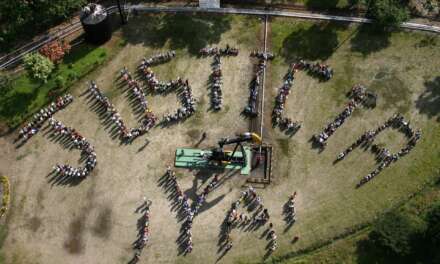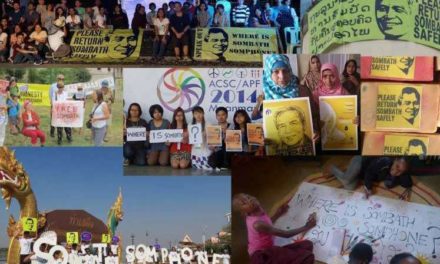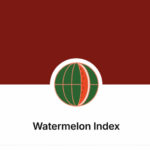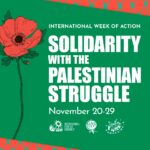
Originally published here.
- Hundreds of civil society, Indigenous Peoples’ and women’s organisations urge Member States of the CFS to stand strong in the face of pressure to undermine human rights and gender equality.
- The CSIPM Women and Gender Diversities Working Group calls on CFS Member States and other participants to recognise women as active political agents who have the rights and agency to determine their own vision, change and development.
3 March 2023. Rome, Italy. On the eve of International Women’s Day, a setback to human rights looms large at the policy process of the UN Committee on World Food Security (CFS) Voluntary Guidelines on Gender Equality and Women‘s and Girls Empowerment in the context of food security and nutrition,(GEWGE), warns the CSIPM Women and Gender Diversities Working Group. Hundreds of civil society, Indigenous Peoples’ and women’s organisations have urged Member States of the CFS to stand strong in the face of pressure to undermine human rights and gender equality. This is key if the CFS wishes to achieve the adoption of Guidelines, which, following along the lines of previous policy outcomes, can equip the world with effective strategies, proven methods, and valuable insights in order to improve public policies to advance gender equality.
In a recent public statement that was endorsed by nearly 500 civil society organisations, social movements and individuals worldwide, the CSIPM Working Group called for an informed and inclusive process that considers the intersecting forms of discrimination and the diverse oppressive and violent conditions faced by women, girls and non-cis heteronormative persons. The latter are persons whose gender identity and/or gender expression do not match the biological sex assigned to them at birth, as well as persons who experience affection, sexual attraction to, and sexual relations with individuals of the same gender, or more than one gender.
Today, billions of women, girls and non-cis heteronormative persons bear the brunt of the intertwined food, health, and climate crises. These crises, unprecedented in scale, are exacerbating intolerable pre-existing systemic forms of patriarchal inequalities, oppression, racism, colonialism, violence and discrimination. According to the United Nations Food and Agriculture Organisation (FAO), women make up 44% of the agricultural labour force in the Global South, yet they own only 18% of agricultural land, receive only 5% of agricultural extension services, and are paid significantly less than men for the same work.
In the public statement, the Working Group made clear that it is not possible to accept anything less from the CFS than a vision for an ambitious document. As the foremost inclusive international and intergovernmental platform to address food security and nutrition issues, the Committee cannot turn a blind eye to the fact that gender discrimination is a cross-cutting issue that prevents millions around the world from realising their right to food while feeding the world.
“We cannot accept the invisibility of references to many crucial issues, forms of oppression, rights violations and lives, because this allows discrimination and violations to continue unabated”, the Working Group affirmed.
Over the past two years, the CFS has had an outstanding opportunity to develop a pioneering policy instrument to address the inequality and discrimination faced by women and girls in realising their rights to food. However, in July 2022, unable to build consensus on key issues, the CFS failed to adopt the Voluntary Guidelines during CFS 50. Fortunately, Member States agreed to work together for another year in the hope of reaching consensus. Now the process has restarted, led by the CFS Chairperson Gabriel Ferrero, and the Guidelines are expected to be adopted during the CFS 51 Plenary Session in October 2023.
The current draft contains important advances in terms of language for policies on social protection and redistribution of care work. Although almost 80% of the text was agreed ad referendum in the last round of negotiations held in July 2022, some Member States have recently warned that they might be re-opening some paragraphs.
Similarly, the new draft proposed by the CFS Chair now removes text that recognises women and girls in all their diversities. It fails to recognise the existence of non-cis heteronormative persons, a population that is frequently and increasingly a target of discrimination. It also fails to recognise the patriarchal structures that have defined today’s industrialised food system in the first place. Another setback is the de-prioritisation of sections on sexual and gender-based violence and unpaid care and domestic work: both are structural issues that are so closely intertwined with food security and nutrition that we cannot avoid putting them at the heart of guidelines on gender equality.
In response, the Working Group has expressed that the setbacks of the current draft are not related to the “quantity” of words, but rather to the importance of where particular terminology is mentioned, and how it relates to the entire document. It warns that by sticking only to the language recognised by a UN or CFS outcome document, the patriarchal status quo, which shapes existing oppressive gender norms, will never be transformed, and will continue to hinder the realisation of food security and nutrition for all people. The much-needed radical and urgent transformation of our food systems will fail if it does not address the historic power asymmetries and injustices faced by women, girls and non-cis heteronormative persons.
Simply removing from the text the voices of those most affected by food and nutrition insecurity does not change reality. Women, girls, and non-heteronormative persons continue to face serious adversities, such as poverty, increased burden of care, and a rising exposure to gender-based and sexual violence. They often experience a violation of their Sexual and Reproductive Health Rights. Promoting gender equality is a key step towards eradicating hunger, enhancing nutrition, and strengthening peoples’ ability to cope with crises.
The CSIPM Women and Gender Diversities Working Group has brought into the process the voices of peasant women, Indigenous women, women from war-torn countries, those living under occupation, non cis-heteronormative persons, fisherwomen, landless women, pastoralists, agricultural and food workers, consumers and urban food insecure women from numerous countries from the South and the North. Delegates provided examples based on personal experience, demonstrating how sexual and gender-based violence continues to be part of their daily lives. They further explained how such forms of violence intersect with other forms of oppression, thereby preventing their access to and control over natural resources, and hindering them to produce and access food with dignity. Several interventions were based on first-hand experience as small-scale food producers in their territories.
On March 7, on the eve of International Women’s Day, the CFS Gender workstream will convene an Open-Ended Working Group meeting, with the participation of Member States, participants and observers. On this occasion, the CSIPM Working Group, which will actively participate, calls on CFS Member States and other participants to recognise women as active political agents who must have the rights and agency to determine their own vision, change and development, and who are already working to achieve food security.
Links of interest:
- Women and Gender Diversities Working Group statement on the CFS GEWGE process.
- Report: Gender, Covid-19 and Food Systems: impacts, community responses and feminist policy demands
- Final Working Group’s statement during 2022 negotiations.
- CFS Proposed solutions to contentious issues
- CSF 50 side event Intersectionality, Gender Equality and the Right to Food
Participants of the CSIPM Women and Gender Diversities working group are available for further enquiries.
CSIPM secretariat press contact:
Betsy Díaz Millán: [email protected]
Marion Girard Cisneros: [email protected]








